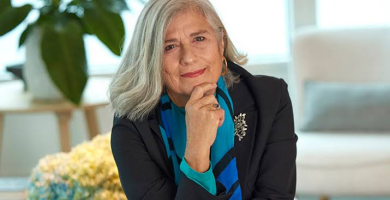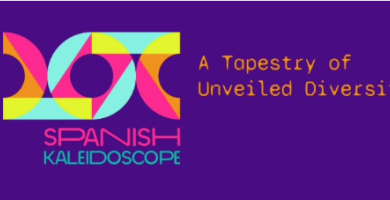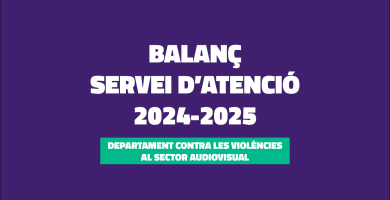
LILIANA TORRES: “Not having role models on the screen for certain life experiences, in this case not being a mother, makes it more difficult to take calm decisions without fear”.
This month we interviewed Liliana Torres, the filmmaker who has just premiered her third film. Mamífera is the history of a woman who doesn’t want to be a mother. The film was shot in Barcelona.

How did your interest in film and specifically in being a director arise?
It started at a very young age, because my father was a keen film lover. Our great passion, when he came out of work on Fridays, was to go to Vic, which was the nearest city, and to take six films from the video club. We spent the weekend watching them. My first contact with films was with genre cinema, Z movies, which is what my father liked. And also Woody Allen films, eh? I’d always experienced films as a viewer; I loved them. I became a film lover from a very young age. And I remember that I was at secondary school preparing the university entrance exams and they gave us a list of what we wanted to be. The list put: history of art, criminology and, above criminology, I saw Cinema. And I thought: “Wow, can you study that?” I had a friend in the same year who told me: “Yes, I’m going to do some tests at university, to see if I get in”. And I said to myself: “If you can do that, I want to try it”.
Your films have a lot of autofiction, such as ¿Qué hicimos mal? and Family Tour. Is this one also based on your personal experience?
No, right from the beginning I imagined it differently. I’ve sort of made all my films according to what I thought the story was asking for at the time. And in this case, I felt that the story would make good fiction as I’d written it. I could perfectly well transfer it to a world of fiction. And, moreover, it was very clear for me that I wouldn’t be the main character, because I wanted it to be someone who would reach much more people, someone much fresher, more flexible and with whom you could easily empathize. So it was clear for me that I had to approach it from fiction.
What was the screenwriting process like, compared with how you wrote the rest of your films?
It was different because, for example, in Family Tour the script process was the same, written from fiction but based on real things, although many things were left out during the shooting, because I gave a lot of space to what was really happening. In ¿Qué hicimos mal? there were a lot of gaps in the script, which were things from the real interviews and from everything that was happening and which then filled out during the shooting. And in this case it was a process like Family Tour of really writing it and working on it with several versions. And then developing it.
This is a story that is never explained. Do you think that it is necessary to explain more stories like this?
Yes, many more. Not having role models on the screen for certain life experiences, in this case not being a mother, makes it more difficult to take calm decisions without fear. For me it’s very important that there’s a character you can relate to, empathize with and understand right to the end. And that she’s a positive role model for people who don’t want to have children. Until now, it was only secondary characters who didn’t want to have children, and they were real stereotypes and full of clichés. All of Disney’s witches are single and don’t have children. And that’s what children are fed and they find them horrible and don’t want to be like them. Or at best there’s the example that’s been sold to us as positive, which is the woman who has such an important job, like doing open-heart surgery on children in Africa, that she’s excused for not having children. All this is a way of telling you: “Be a mother”. It’s quite difficult when there aren’t any positive role models. For me it’s very important to show it.
Just out of curiosity, why is the dog in the film blind?
Cleo. Because I wanted Lola to be a clearly caregiving and nurturing character, nothing like the stereotype of the woman who doesn’t want to have children and doesn’t care for anything. A dog is a tremendous responsibility. You are everything for that dog. I also wanted it to be an adult dog, not a puppy, because otherwise at the end of the film they’d say that she’s sublimating something with the puppy.
Was it very difficult for you to make the film?
Not at all. We were very lucky this time. We didn’t have a brilliant budget, but we were able to fund it moderately well and we entered a rapid financing process to which we’re accustomed. We should also consider whether what we’re used to is normal, but it wasn’t especially difficult.
Was it clear for you that Maria Rodríguez Soto and Enric Auquer would be the main characters?
Maria yes, because in one of the versions of the script her name came up and straight away it was clear. We met and saw that we could easily talk and work well together. As for Bruno, we did do tests with several actors, but not that many. And we decided on Enric.
Do you give the actors space to be able to improvise or is it all previously set out?
In this case there was practically no improvisation. I think there’s one scene in which Enric introduced a few little things and they stayed in. The script marked it all and we didn’t feel the need to add anything else. A few affectionate expressions or words, but for the rest of the dialogue it worked well as it was written.
How do you experience the shooting? Because you write the script, but then you have to take it to the filming as well, and they are completely different moments.
Extremely different. For me, writing is a very individual and very solitary process which is very vertical, but which has parts in which you feel very lost and you think that you’ll never find the solution. This is quite an issue, eh? You need a long time to sit down and be able to write a complete script. And, wow, it’s so difficult nowadays to find and block all these spaces! But I really like writing. It’s one of the things I like the most. The filming has another rhythm: frenetic, accompanied by other people all the time, and it’s outward, outward, outward... And the whole time you think: “Fingers crossed that I’m making the right decisions”. It’s great fun when you start rehearsing the scene with the actors and then when you arrive at the location. There are parts that are great fun.
The film was shot in Barcelona. Was it clear for you that you wanted to shoot here and what were the locations like? A lot of time is spent in the Montbau neighbourhood, for example. Was it very clear for you that you wanted to shoot there?
Yes. The neighbourhoods are clearly set out in the script because I wanted to give great importance to your postcode and your socioeconomic status and how this determines how you see the possibility of being a mother and how you experience maternity. I wanted each of the female friends to have a specific identity with this, and the flats where they live to be real flats from each of the locations. It was clear for me that it should be Montbau, because it’s a traditional working-class neighbourhood which has some of the first social housing that was built in Barcelona and moreover with beautiful architecture from the 1970s. It was clear for me that I wanted to film in this neighbourhood and that I wanted it to be Lola and Bruno’s home. And for the other neighbourhoods, I wanted a house in the Eixample district for someone with more money. Someone else who lives in Torre Baró, which is a neighbourhood where I think the majority of the accommodation is social housing. Sometimes this represents a much more precarious socioeconomic status. I also wanted to situate all these economic determinants in the script.
The Texas festival South by Southwest gave the Special Jury Award for Performance to Maria Rodríguez Soto. What was the experience like of taking a film which talks about maternity and abortion to a country which is currently taking a big step backwards on this issue?
Austin, in Texas, is the only Democrat city in a completely Republican state. If you need to find progressive people in Texas, they’re in Austin. In this respect, the audience was in favour of women’s rights. They spent the whole time demonstrating that they were in favour of this and they were very happy that it had been officially selected to put this issue back on the table.
We also thought that it was quite extraordinary to be in the official selection, where there are only eight titles. We knew that it was very difficult to win best film, not just because of the quality of the films, but also because we were the only foreign language film and it’s an award that’s never been won by a foreign language film. It’s also true that when Maria won, moreover for best performance - there is no male and female category - I was moved because I wasn’t expecting anything and I didn’t know what to say. I was speechless. Luckily Carla (Sospedra, the producer) went up with me, because otherwise it would have been a disaster. We thought it was extraordinary because we all know what the quality of the actors is like in that country.
Will your next project be autofiction or fiction?
It’ll be fiction with a touch of gender. It’s about menopause linked to climate change.
Are you working on the script? Don’t you leave a space between projects?
When I find a space I enter it. These last few days I had to stop writing for the promotion and that’s very frustrating. But you have to do the promotion. Yesterday when I arrived from Valencia I thought: “I’ll write for these four free hours”, but I was exhausted, the dog wanted my attention, and in the end I saw that I couldn’t so I said to myself: “Just leave it”.









